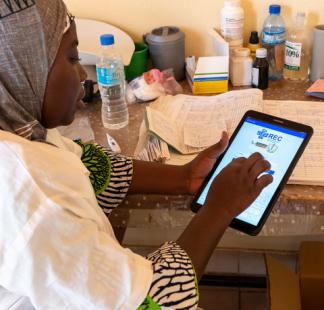Displaying 13 - 24 of 44
03 Aug 2026 - 07 Aug 2026
Face to Face
This training course will equip participants with the knowledge and tools to design and implement secure, interoperable, and citizen-focused digital…
Registration:
Open until 30 Apr 2026
Languages:
- English
05 Oct 2026 - 30 Oct 2026
Online instructor led
This training offers a complete overview of spectrum management for aeronautical and radiodetermination services in both commercial and military…
Registration:
Open until 14 Sep 2026
Languages:
- English
Open
Online self-paced
This course has been developed by ITU to provide an introduction to the Tampere Convention on the Provision of Telecommunications Resources for…
Languages:
- English
05 Oct 2026 - 16 Nov 2026
Online instructor led
Digital technology is becoming important in addressing sustainable development challenges. This course introduces participants to the challenges of…
Registration:
Open until 13 Sep 2026
Languages:
- English
30 Oct 2026 - 17 Dec 2026
Online instructor led
Rapid development of digital technologies provides new opportunities for public policy. Technologies such as artificial intelligence, e-government…
Registration:
Open until 11 Oct 2026
Languages:
- English
Open
Online self-paced
In the telecommunications industry, price is no longer the sole factor in purchasing decisions. Service quality plays a key role to all stakeholders…
Languages:
- English
Open
Online self-paced
Wireless technology now drives the development and diversification of information and communication services for government, industry, and the public…
Languages:
- English
Open
Online self-paced
The course is aimed at providing information on how to develop National Emergency Telecommunications Plans through a multi-stakeholder approach…
Languages:
- English
Open
Online self-paced
In this comprehensive course, we will delve into the critical issue of electronic waste (e-waste) on a global scale. E-waste, comprising discarded…
Languages:
- English
Open
Online self-paced
This self-paced course aims to support national stakeholders in developing national Waste Electrical and Electronic Equipment (WEEE) policy and…
Languages:
- Arabic
- English
- French
- Spanish
Open
Online self-paced
This course is based on two ITU products: The Last-Mile Connectivity Internet Solutions Guide and Broadband Connectivity Toolkit. The Last-Mile…
Languages:
- English
Open
Online self-paced
Focusing on protecting civilian aspects of cyberspace, this course covers the overarching principles and good practices in drafting, developing, and…
Languages:
- English
- French
- Russian
- Spanish








